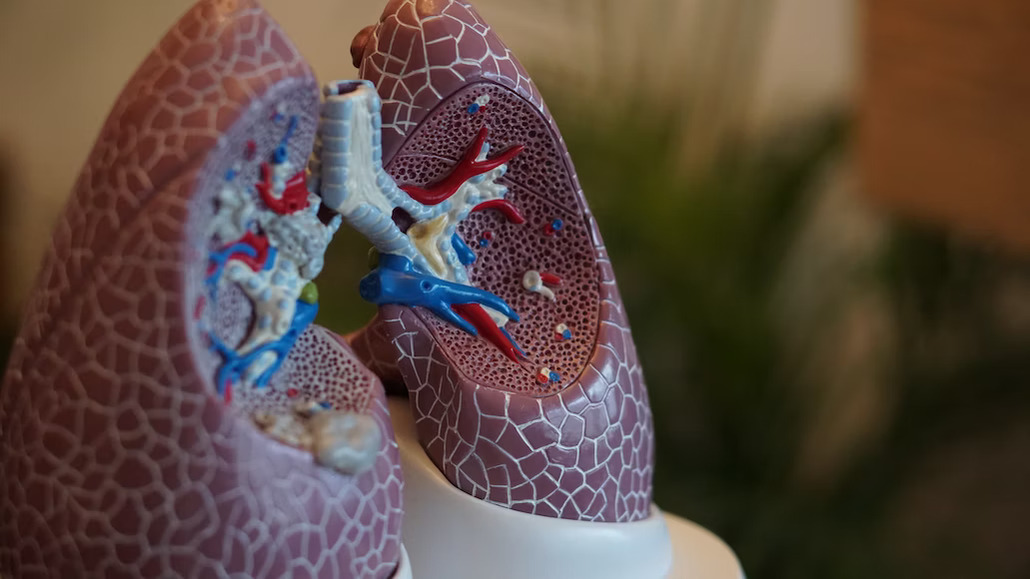Medical Diagnostic Techniques for Lung Cancer and Sleep Problems

Lung cancer is a complex and challenging disease affecting millions worldwide. When lung cancer advances, it spreads and affects the health of other body parts. Besides severe symptoms such as shortness of breath, chest pain, and loss of appetite, patients often face additional health issues such as sleep problems. Sleep disturbances severely impact the overall health of individuals, specifically patients with deadly diseases such as lung cancer.
These sleep problems prevalent in lung cancer patients often arise due to physical, emotional, and psychological factors. It hence becomes crucial to employ effective diagnosis and treatment to identify and address sleep problems of lung cancer patients. A medical diagnosis allows the doctor to understand the pattern of sleep problems.
Understanding Sleep Problems in Lung Cancer Patients
-
Insomnia:
Many lung cancer patients have trouble falling or staying asleep, resulting in insomnia. Side effects of medications, pain, and anxiety are a few factors that can contribute to the sleep disorder.
-
Sleep-Related Breathing Disorders:
As lung cancer directly impacts respiratory function, resulting in sleep-related breathing disorders such as sleep apnea or central sleep apnea. These conditions could result in disrupted sleep patterns and poor sleep quality.
-
Restless Legs Syndrome (RLS):
RLS is a condition observed in lung cancer patients that severely impacts sleep initiation and even sleep maintenance. Some lung cancer patients develop this neurological disorder that results from an irresistible urge to move their legs that initiates uncomfortable sensations.
-
Excessive Daytime Sleepiness (EDS):
One of the evident symptoms of lung cancer is patients experiencing fatigue and drowsiness. EDS significantly impacts the sleep cycle, interferes with daily activities, and has a great impact on the quality of life.
Techniques for Medically Detecting Sleep Issues in Patients with Lung Cancer
Medical diagnosis is an important step in diagnosis and treatment that is performed with the aim of identifying sleep problems in lung cancer patients. Healthcare providers employ detailed diagnostic techniques to gain accurate insights into the specific sleep disturbances experienced by these patients. Some of them are mentioned below-
-
Sleep Questionnaires:
The purpose of employing sleep questionnaires in medical diagnosis is to assess sleep quality, duration, and daytime sleepiness levels. These questionnaires help identify common sleep problems and provide a reference point for further diagnostic investigations.
-
Polysomnography (PSG):
PSG is a comprehensive sleep study conducted in a sleep laboratory. It involves detailed monitoring of various physiological parameters during sleep, including brain activity, eye movements, muscle tone, heart rate, and respiratory patterns. PSG helps diagnose sleep disorders like sleep apnea and provides detailed information about sleep architecture and quality.
-
Multiple Sleep Latency Test (MSLT):
MSLT is often used to assess excessive daytime sleepiness. It measures the time a patient takes to fall asleep during scheduled daytime naps, providing insights into the severity of daytime sleepiness and underlying sleep disorders.
-
Actigraphy:
Under actigraphy, patients must wear a wrist-worn device that is designed to measure movements and light exposure to estimate sleep patterns and disruptions over an extended period. This technique is particularly useful in monitoring sleep-wake cycles and evaluating the effectiveness of interventions.
-
Home Sleep Apnea Testing (HSAT):
In some cases, healthcare providers may opt for HSAT. As the name suggests, HSAT is a simplified version of PSG that can be conducted in the patient’s home. It involves monitoring specific parameters such as breathing, oxygen levels, and heart rate during sleep. HSAT is particularly useful for diagnosing sleep-related breathing disorders like sleep apnea.
Treatment Options
Once sleep problems are diagnosed, healthcare providers can recommend various treatment options tailored to the specific needs of lung cancer patients. These may include:
-
Medications:
Medication is an essential step in the treatment of every disease. Depending on the sleep disorder, medications such as sleep aids, sedatives, or medications targeting specific symptoms may be prescribed.
-
Continuous Positive Airway Pressure (CPAP):
CPAP therapy is a common treatment for sleep apnea. It involves wearing a mask during sleep that delivers a constant flow of air, keeping the airways open, enhancing breathability, and facilitating uninterrupted breathing.
-
Cognitive Behavioral Therapy for Insomnia (CBT-I):
CBT-I is a non-pharmacological approach that helps patients develop healthy sleep habits and address psychological factors contributing to insomnia. It includes techniques such as stimulus control, sleep restriction, and relaxation training.
-
Complementary and Alternative Therapies:
Some patients find relief from sleep problems through complementary therapies like acupuncture, meditation, massage therapy, or aromatherapy. These therapies are provided alongside medication and other therapies.
Besides regular medical diagnosis, patients of lung cancer are suggested to practice lifestyle modifications such as maintaining a regular sleep schedule, creating a conducive sleep environment, and practicing relaxation techniques. These measures can also significantly improve sleep quality for lung cancer patients and improve the outcomes of the treatment. Moreover, it is essential for healthcare providers to collaborate closely with patients to determine the most suitable and effective treatment options based on individual needs and circumstances.
Effective diagnosis is essential for implementing appropriate treatment options and improving sleep quality, ultimately enhancing the overall well-being of lung cancer patients. Early diagnosis and timely treatment can significantly contribute to managing sleep problems and improving the quality of life for patients with lung cancer.



